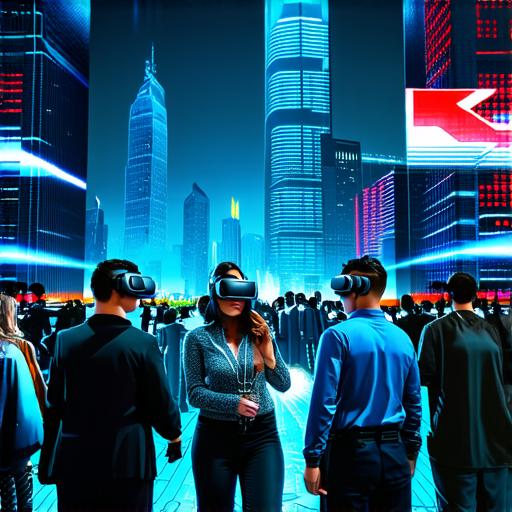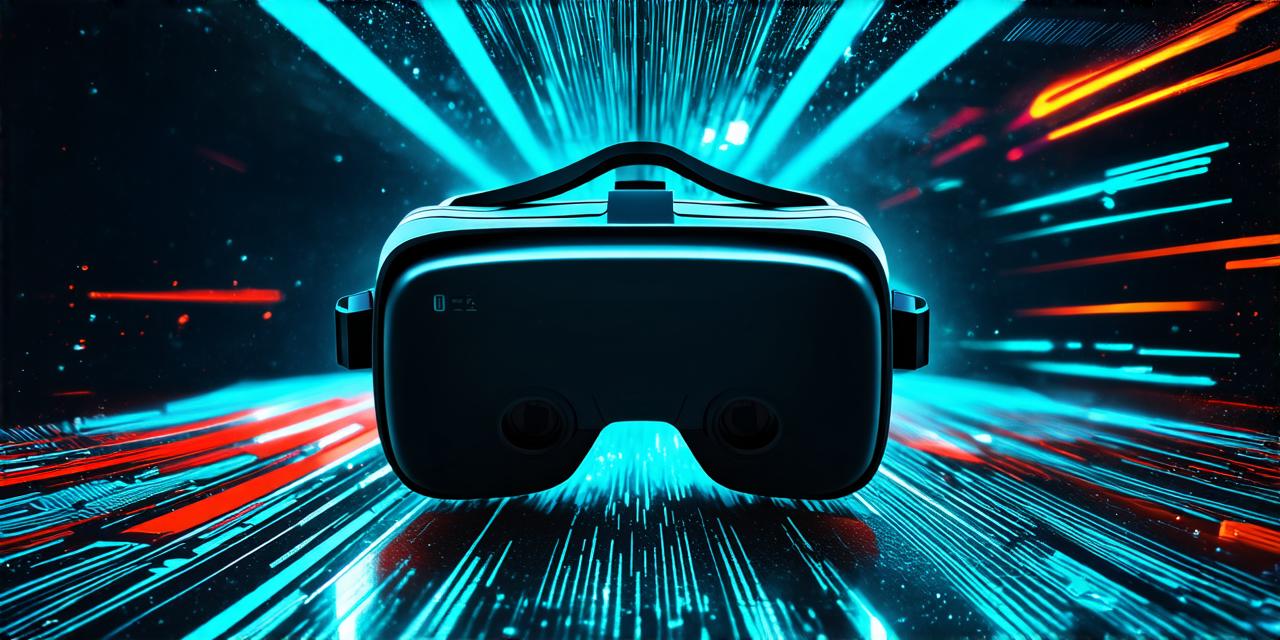In recent years, virtual reality (VR) technology has gained immense popularity worldwide. The immersive and interactive experience offered by VR has the potential to revolutionize various industries, from entertainment to healthcare.
1. The Advantages of Virtual Reality
Virtual reality offers numerous advantages that have the potential to transform society in various ways. One of the key advantages is the ability to create realistic simulations that can be used for training, education, and entertainment purposes.
For instance, VR can be used to train medical professionals in complex surgeries or provide students with an immersive learning experience.
Moreover, VR has been found to have therapeutic benefits in various fields, including mental health and physical rehabilitation. For example, VR therapy has been shown to be effective in treating anxiety, depression, and PTSD. It can also be used for physical rehabilitation, such as in the case of stroke patients who have difficulty with balance and coordination.
Another advantage of VR is its ability to bring people together virtually, regardless of geographical distance. This has immense implications for social connections and collaboration, particularly in the age of remote work and globalization.
2. The Challenges of Virtual Reality
While VR technology offers numerous advantages, it also presents several challenges that need to be addressed by virtual reality developers.
One of the main challenges is the high cost of VR equipment and software, which can limit its accessibility to a broader audience.
Moreover, the lack of standardization in VR hardware and software can make it difficult for developers to create content that is compatible with different devices and platforms. This can hinder the growth of the VR industry and limit its potential impact on society.
Another challenge is the potential negative effects of VR on human health, such as motion sickness and eye strain. Virtual reality developers need to ensure that their technology is safe and does not cause harm to users.
3. Case Studies of Virtual Reality in Society
Several case studies have demonstrated the impact of VR on society in various industries.
In the entertainment industry, VR has been used to create immersive gaming experiences that have captured the imagination of gamers worldwide. For example, the virtual reality game “Beat Saber” has become a cultural phenomenon and has sold over 5 million copies worldwide.
In the healthcare industry, VR therapy has been found to be effective in treating a range of conditions, including anxiety, depression, and PTSD. For instance, a study conducted by the University of Southern California found that VR exposure therapy was as effective as traditional cognitive-behavioral therapy in treating PTSD in veterans.

In the education industry, VR has been used to provide students with an immersive learning experience that can enhance their understanding and retention of information. For example, the University of Maryland used VR technology to create a virtual field trip to ancient Egypt, which allowed students to explore the pyramids and temples in a realistic and interactive way.
4. Expert Opinions on Virtual Reality
Several experts have provided insights into the impact of VR on society and its potential implications for virtual reality developers.
For instance, Jaron Lanier, a digital philosopher and author, has expressed concern about the potential negative effects of VR on human relationships and privacy. He argues that VR technology could lead to a loss of authenticity and intimacy in human interactions, as well as a violation of personal data and privacy.
On the other hand, Nick Yee, a researcher at the Stanford Virtual Reality Lab, has highlighted the potential benefits of VR in enhancing social connections and collaboration. He argues that VR technology can enable people to form stronger and more meaningful relationships, particularly in remote work and globalization.
5. Real-Life Examples of Virtual Reality in Action
Several real-life examples demonstrate the impact of VR on society in various industries.
For instance, architects have used VR technology to create virtual models of buildings and structures, which allows them to test different designs and make adjustments before construction begins. This can lead to more efficient and sustainable building practices.
